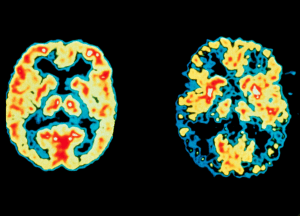Zonegran study could pave way for paediatric licence
pharmafile | September 2, 2011 | News story | Research and Development, Sales and Marketing | Eisai, Zonegran, epilepsy, research and development news
Eisai’s epilepsy drug Zonegran has been found more effective than placebo in children with the neurological condition who have seizures.
The phase III CATZ study also showed Zonegran (zonisamide) was well-tolerated in paediatric patients treated with one or two other anti-epileptic drugs.
Licensed from Dainippon Sumitomo Pharma, Zonegran is currently used as adjunctive therapy in adults with such seizures, with or without secondary generalisation.
The preliminary findings presented at Rome’s Epilepsy Congress this week could open up a new patient group: of the estimated 50 million people worldwide who have epilepsy, 10.5 million are children under the age of 15.
Many children have to take more than one type of anti-epileptic to reduce seizures.
CATZ set out to assess adjunctive Zonegran in 207 patients aged six to 17 with partial-onset seizures who were on one or two anti-epileptics.
Primary endpoint was the proportion of responders after 12 weeks: 50.5% responded positively versus 31% with placebo, with safety and tolerability similar in both.
Decreased appetite, weight loss, somnolence, vomiting and diarrhoea were among the reported side effects.
Zonegran is one of a trio of epilepsy drugs which the Japanese firm has on the European market: Zebinix (eslicarbazepine acetate) has the same indication, while Inovelon (rufinamide) is an add-on for seizures associated with Lennox-Gastaut Syndrome.
But earlier this year, the FDA refused to file Eisai’s anti-epileptic perampanel, saying it needs more information for the treatment.
In June, GlaxoSmithKline and Valeant’s Potiga (ezogabine) was approved by the US regulator, but it will require further review before it can be launched.
Known as Trobalt (retigabine) outside the US, it was approved in March as an adjunctive treatment of partial onset seizures with or without secondary generalisation in adults aged 18 years and above.
Despite this success, patent expiries such as GlaxoSmithKline’s blockbuster Lamictal and Johnson & Johnson’s Topomax (due to go next year) are set to make the epilepsy market a tricky one for new entrants.
Adam Hill
Related Content

Eisai shares new data for Leqembi for Alzheimer’s treatment
Eisai and Biogen have announced that Eisai has shared new data for Leqembi (lecanemab-irmb) 100mg/mL …

FDA grants Alzheimer’s disease drug Leqembi full approval
Japanese pharmaceutical company Eisai and US-based biotechnology company Biogen have announced that the US Food …

Angelini Pharma and JCR Pharmaceuticals partner to develop new epilepsy therapies
Angelini Pharma and JCR Pharmaceuticals have announced that they have entered into an exclusive global …








